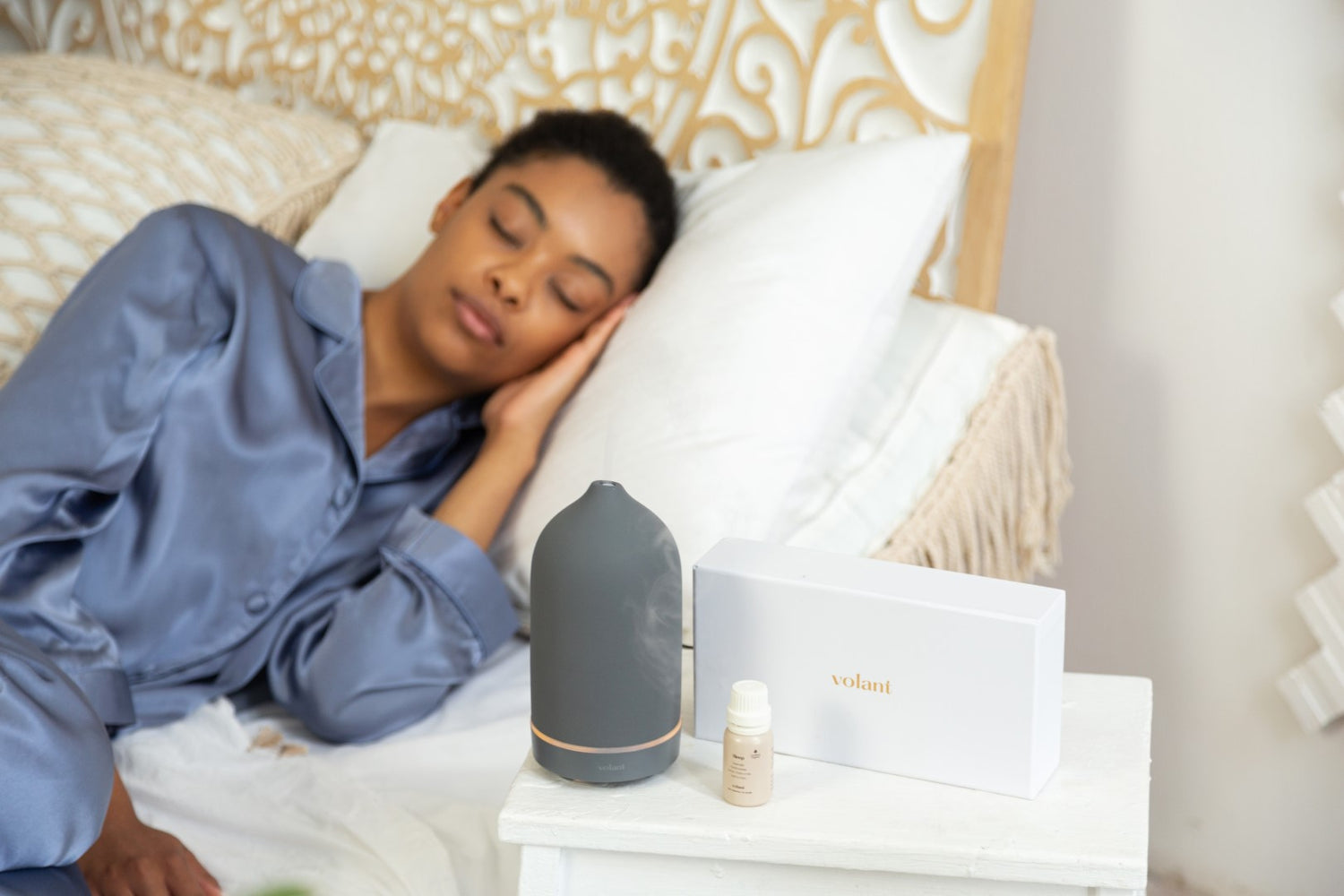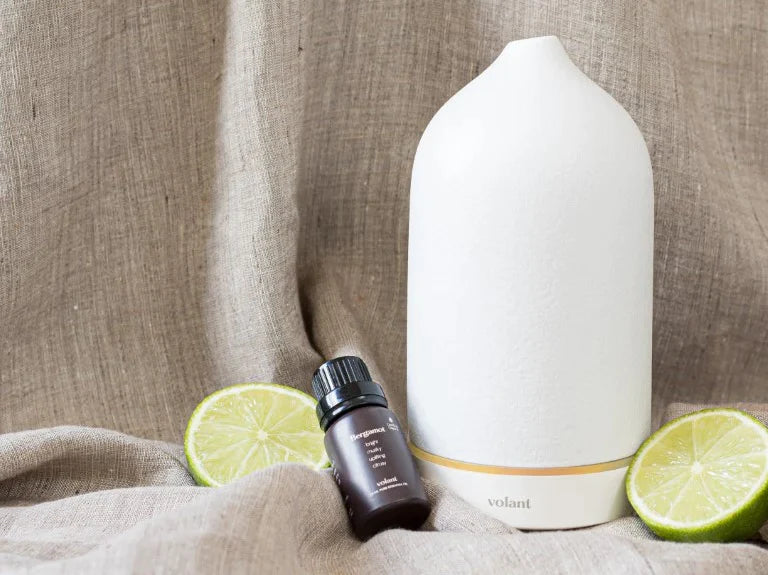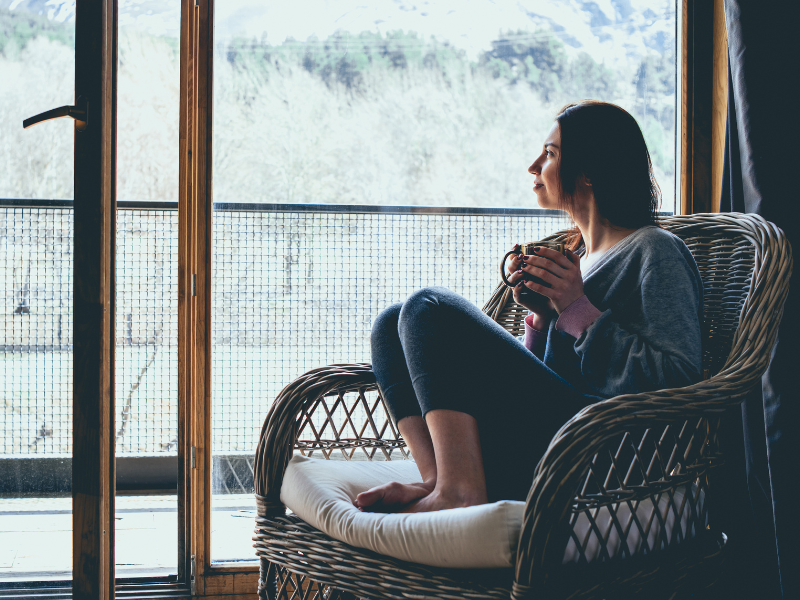I find that I sleep better in California. I think it has something to do with the lavender fields we used to live by. Fortunately, one does not have to live in southern California to take advantage of the benefits of lavender.
The sense of smell is often overlooked as a tool to help you sleep. There are several essential oils that can help you fall asleep and sleep well.
How can smell affect us?
Our sense of smell is connected directly to the brain's centre for memories and emotions. Cells inside the nose detect odours in our environment and send information to the brain via the olfactory nerve. The information about the smell goes straight to the brain's limbic system including the amygdala, which controls emotional reactions and memory.
Studies on essential oils and sleep
A number of studies show that essential oils improve the quality of sleep in adults. A study from 2017 compared the effect of aromatherapy and acupressure massage on sleep quality and quality of life in women. Researchers found that a blend of sleep-promoting essential oils was more effective in improving both sleep quality and quality of life than acupressure. The oil blend was also more effective in improving sleep than a single essential oil (lavender.)
Lavender: The original scent for sleep
This is the most popular essential oil for sleep and relaxation among our customers, and my first, general recommendation for trying out aromatherapy for sleep. Lavender is a soothing scent that has long been associated with relaxation and sleep. The oil is also used for anxiety. Lavender is probably the most researched essential oil. A number of studies point to the effect of lavender oil on sleep: It improves sleep quality, increases the amount of sleep and makes you more awake during the day also in people with insomnia (insomnia.)
Read more on the research of Lavender oil.
Bergamot: A citrus oil with a proven effect
Most citrus fruits are known for their invigorating properties. This does not apply to Bergamot. Bergamot essential oil lowers heart rate, blood pressure and reduces anxiety. No wonder it is often used for sleep.
Read more about research on Bergamot oil.
Jasmine: Sweet dreams
Jasmine is known to have a sweet floral scent and sleep-promoting properties. Research shows that jasmine improves sleep quality, as well as focus on daytime. A 2002 study confirmed that jasmine had these sleep benefits, in addition to reducing anxiety more effectively than lavender.
Sandalwood: The smell of forest that makes you relaxed
With a rich, wood / earth-scented scent, sandalwood has a long history of being used for relaxation and anxiety relief. Research shows that sandalwood can be effective in relieving anxiety symptoms. Research has also shown that sandalwood can have sedative effects, reduce wakefulness and increase the amount of NREM sleep (deep sleep.)
NB! Some respond to sandalwood by becoming more alert. It is individual how the oil affects you.
How to use the oils?
It is important that you are exposed to the scent for some time before and while you sleep. There are several ways to do this.
Use an aroma diffuser (recommended)
Place the aroma diffuser in the bedroom and set it on 30 minutes before going to bed. Be sure to put the phone away for the same period. If you meditate or read before going to sleep, it is ideal to do this in the bedroom. Make sure the diffuser is set to turn off automatically after 3-6 hours.
Have a few drops in a warm bath
This is a great way to get the relaxation and sleep benefits of aromatherapy, while also getting the sleep-promoting effects of hot water. Drip 5-10 drops into the bath water after the tub is filled. Take the bath about one hour before going to bed.
Make your own spray
Mix essential oil and water in a spray bottle and spray around your room, or lightly on your bedding. In that case, I recommend spraying the underside of the pillow to avoid skin irritation. For every 3 dl of water, use 5 drops of essential oil, or less if the scent is too strong.
Application on the body
Some people find it soothing to use essential oils on pressure points, such as the wrists or behind the ears, or by giving themselves a light self-massage. (Massage for - or from - partners also works well!) Essential oils in undiluted form are very concentrated and intense, and can irritate your skin. DO NOT apply undiluted essential oil to your skin. If you plan to use essential oils on your body, you should combine essential oil with a carrier oil.
Read more about the different carrier oils here.
We hope this post has made you aware of which oils you are interested in testing. Send us an email at support@volantaroma.com if you have questions or feedback :-)





